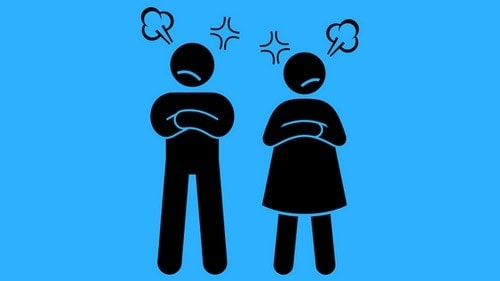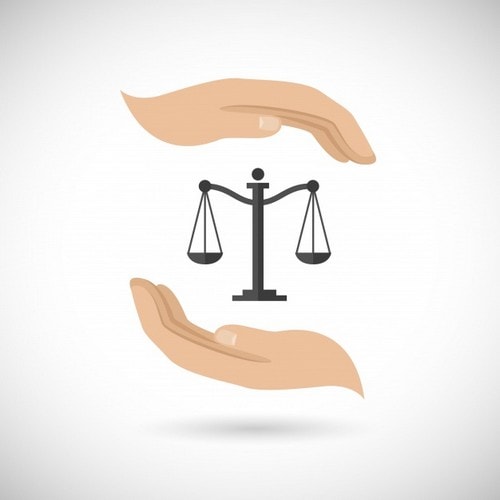
Mastering Effective Communication: 15 Strategies for Success

Learn the art of effective communication and stand out as an exceptional leader with these top 15 strategies Encourage open communication, be confident, authentic, and mindful of body language Practice conflict resolution, compromise, and positive atmosphere creation Listen, avoid judgement, and tailor your approach to your audience Apologize when necessary and keep stress at bay Enhance your communication skills to achieve success in all aspects of life
Strong communication skills are a crucial component of exceptional leadership, setting apart the great from the mediocre. Clear communication fosters a healthy and productive environment, minimizing misunderstandings and facilitating the smooth and timely completion of tasks. The beauty of effective communication is that it is a learnable skill, requiring only a modest investment of effort. Many of history's most respected leaders attributed their success to their ability to maintain open lines of communication and connect with others on a personal level.
Creating effective communication involves ensuring that your intentions are clearly and precisely conveyed, allowing for a deeper understanding between parties. This can be achieved through both active listening and timely, assertive speaking. To encourage a positive response, it's important to be compelling and assertive in your message and approach. It's also crucial to recognize the distinction between thought processes and behavioral patterns, and to establish a viable bridge for effective communication.
What is Effective Communication?
In today's fast-paced business world, effective and concise communication is crucial for success. It can be the difference between a thriving company and one that struggles to stay afloat. Understanding what effective communication entails is the first step towards mastering this essential skill.
To be an effective communicator, it's important to not only choose the right words, but to also consider how they will be received by your audience. Honesty, clarity, and conciseness are key, as is avoiding jargon or complex language unless necessary. Understanding your audience's perspective on the subject matter can also help you tailor your language to their needs. While communication can be challenging, there are basic rules that all effective communicators follow to improve their skills. Consider these tips to start improving your own communication abilities.
Strategies to Communicate Effectively and Improve your Communication Skills
Here are the best tips you can follow for effective workplace communication and team communication skills…
1) Encourage open communication
Encouraging open communication is crucial for effective communication, allowing all parties involved to freely express their thoughts and ideas without hesitation. It's important to find a comfortable setting and time that works for everyone, ensuring that everyone can speak openly and honestly about the issues at hand.
To maximize the effectiveness of communication, try scheduling important discussions in the morning when everyone is fresh and alert. This will help ensure that everyone is fully engaged and able to actively participate in the conversation. Open communication involves actively listening and avoiding interruptions or distractions, allowing each person to fully express their thoughts and ideas without fear of any negative consequences.
2) Be confident
Effective nonverbal communication requires self-confidence as a crucial tool. Misinterpretation of one's words can lead to frustration and conflicts, causing problems in both personal and professional life. Developing self-confidence can prevent such misunderstandings and lead to successful communication.
Encouraging and building confidence is a crucial aspect of mastering effective verbal communication skills. By prioritizing trust and respect in your interactions, you can establish meaningful connections and tackle challenges with greater ease.
3) Encourage one-on-one communication
If you want to improve your communication habits, consider encouraging one-on-one talks. By taking the time to have a face-to-face conversation with an employee or other individual, they will appreciate the gesture and feel more comfortable opening up and sharing problems in confidence. This is often not possible when interacting in a group setting.
Your supportive attitude and willingness to help have empowered the individual to confront the challenge that has taken hold of them. This action will establish a robust communication channel that can assist you in maintaining amicable connections with others.
4) Be authentic
Show your true self and let others see your imperfections. When interacting with others, maintain eye contact and avoid pretending to be someone you're not. People will eventually see through any false image you try to project, so it's best to be genuine from the start. Remember, effective communication is all about being authentic and honest.
5) Mind your body language while communicating
Your body language speaks volumes, whether you intend it to or not. If you want to communicate effectively in the workplace, it's important to be mindful of how you carry yourself. Make an effort to relax and maintain an open posture. Avoid fidgeting or getting easily distracted. And, most importantly, make eye contact and convey positive, comfortable body language.
6) Be honest in your dealings
When communicating with others, our body language plays a crucial role. One of the key elements of effective communication is having an open and relaxed posture. When we encounter someone who displays this type of posture, we tend to mirror their behavior, resulting in more open and effective communication.
When communicating, it is crucial to maintain a positive body language and be truthful in all your dealings. Although honesty may sometimes be uncomfortable, it is important to stay committed to it for the sake of your own peace of mind and for building long-lasting relationships. As the saying goes, honesty is indeed the best policy and its value has been proven over the years.
Instead of making excuses, it is better to admit your mistakes and take responsibility for them. Avoid the temptation to defend yourself or retaliate with harsh words. Instead, approach the situation with a repentant attitude, allowing your apology to come across as genuine and heartfelt.
When a person is honest and truthful even if he has to face the ire of others he will be able to maintain effective communication in the future.
7) Conflict resolution
Inevitably, conflict is a part of life and it's unlikely that you'll encounter someone who has never had any issues with others. However, the key to effective communication is learning how to handle these conflicts in a productive manner.
Running away from a tense situation may seem like an easy way out, but it is not a solution as it can lead to resentment. Ignoring unpleasant situations will only make the discomfort worse in the long run. It is important to address the issue before it grows out of control.
Conflicts often arise from misunderstandings and can trigger negative emotions such as anger and anxiety. It is important to take the time to understand the other person's perspective and respond in a respectful and calm manner. By doing so, you can avoid escalating the situation and find a resolution that works for both parties.
Your willingness to approach the situation without defensiveness and maintain emotional composure will convey your commitment to finding a fair resolution. To effectively resolve conflicts, one must be willing to forgive, let go of grudges, and find a compromise that allows for positive communication and a better future.
8) Be willing to compromise
A person who can effectively communicate through compromise is able to convey a willingness to work with others. This is demonstrated through their body language and attitude, indicating a flexibility and openness to considering different perspectives and ideas. In turn, this approach encourages others to reciprocate, as everyone ultimately desires a successful outcome. Embracing compromise and finding common ground is essential for maintaining strong relationships, as it fosters open and productive communication between all parties involved.
9) Create a positive atmosphere
To improve communication, strive to create a positive work environment. Walking into a workplace filled with serious and unhappy colleagues can be suffocating and discouraging. On the other hand, a positive atmosphere can lead to happier employees and more effective communication. Avoid allowing negativity to take over and instead, focus on fostering a positive and productive working relationship.
10) Be a listener
Effective communication involves not only expressing your own thoughts and opinions, but also actively listening to others. By being a good listener, you have the opportunity to observe their body language and facial expressions, and understand the true meaning behind their words. This can help you build stronger relationships and avoid misunderstandings.
Interrupting others is not only impolite but also disrupts effective communication. It's important to give others a chance to express themselves without interruption if you want to maintain good communication and build strong relationships.
11) Do not be judgemental
Effective communication requires empathy, which means not judging others when they share their problems. Instead, show your understanding and offer suggestions without forcing your own views. Ultimately, it's up to the individual to decide what's best for them. Avoid being the person sitting in the "judgment chair" if you want to be a good listener and communicator.
Effective communication involves respecting others' choices and allowing them the freedom to make their own decisions. It is important to remember that forcing our own thoughts and opinions onto others is not productive or fair. We can offer our perspective, but ultimately it is up to each individual to determine what is best for themselves and their situation.
12) Consider your audience
Tailor your communication to fit the needs of your audience to ensure effective communication. Pay attention to their language and maintain a positive relationship by giving them your undivided attention. Avoid being pushy and make sure to stay within appropriate boundaries. Clearly state the purpose of your interaction to get your message across efficiently.
13) Ask open-ended conversation
Open-ended questions are a powerful tool for reaching the core of any matter. They enable you to keep the conversation going until you have a clear understanding of the issue at hand. To foster stronger relationships, effective communication is essential.
Rather than accepting one-word responses, encourage others to provide detailed and concise answers. For example, instead of simply asking an employee if they have completed a task, ask them to provide a progress report. This will give you a better idea of how much work remains to be done.
When you show others that you are ready to listen then it automatically opens an effective communication channel.
14) Apologize for any blunders
Apologizing immediately for mistakes is crucial in maintaining effective communication. A genuine apology can go a long way in clearing up any misunderstandings between parties. It's important to put aside pride and approach the situation with humility and acceptance of responsibility. Respectfully acknowledging the higher authority and expressing regret can also help to repair any damage done.
When you ask for forgiveness your genuine effort tears down the defense of others so that you can maintain effective and communication styles in the future.
15) Keep the stress in check
When it comes to effective communication, managing and controlling our emotions is crucial, even though stress is an unavoidable aspect of life. To prevent showing signs of stress and anxiety when interacting with others, it is essential to take a moment to collect your thoughts before responding. This can be achieved by thinking on your feet and giving yourself a few seconds to formulate a clear and concise response, avoiding the use of long sentences that may lead to further questioning.
Maintain an even tone and keep your eye on the target so that you come across as a confident person who knows what he is saying.
Final Words!
Being an effective communicator means being able to connect with others regardless of any stress or anxiety that may be present in your life. This skill is essential for building strong personal and professional relationships. Effective communication is a two-way process that involves both receiving and sending messages in a way that ensures everyone is satisfied with the outcome.
Create a common language that is precise, clear, distinct and compelling if you want to encourage effective communication.
Here is a video byon Communicate Effectively.
NEXT
Communication Strategy
PREV
Communication Quotes
START
What is Communication




















